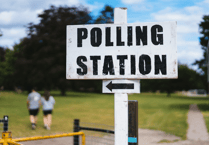It comes as the TV licence increased from £159 to £169.50 this month, after being frozen for two years.
Ministry of Justice figures show there were 18 adults prosecuted for TV licence evasion in Devon and Cornwall in 2022. Of the prosecution in 2022, nine were women and nine were men.
This contrasts with trends across England and Wales, where 32,092 women were prosecuted in 2022 for not having a licence despite watching or recording TV shows – accounting for 74% of adults prosecuted for the offence.
It was down slightly from 75% in 2021, and 76% in 2020.
A TV licence is a legal requirement for anyone wanting to watch live TV on terrestrial channels, or online streaming. The fine for not having a licence is up to £1,000 plus any legal costs. Additional compensation may also be ordered.
Tom Franklin, chief executive of the Magistrates’ Association said the organisation is concerned the offence disproportionately affects women.
He said: "According to TV licencing data, this gender disparity is not reflected in who holds the TV licence, which suggests that the disparity results from either capacity or willingness to pay, or the enforcement practices being followed."
He added it is thought women are more likely to register as heads of household or are more likely to be home during the day, therefore more likely to answer the door to inspectors.
"What we are clear about is that a better understanding is needed of what is behind the disparity, and then action should be taken to address it going forward," he said.
A TV Licencing spokesperson said: "Prosecution is always a last resort and our priority is to help people stay correctly licensed."
They added the issue of why more women are prosecuted than men is a "complex one".
They said: "It was the subject of an in-depth, independently overseen review published last year which found no evidence that TV Licensing deliberately discriminates against any group; that gender is not a factor in the way that we collect the licence fee and that broader societal factors, such as financial hardship and household composition, drive the disparity.
"We are now implementing a 10-point plan to offer further support to people, mitigate the risks of these societal factors where possible and therefore reduce the risk of prosecution."
The Ministry of Justice figures cover a period before the BBC's review and the action plan were put in place.




